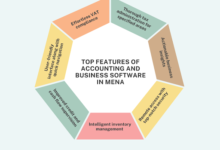Land Investment 101: Essential Factors to Consider

Key Takeaways
- Understanding the essential factors before investing in land can significantly enhance your decision-making process.
- Factors such as location, zoning laws, and environmental conditions play a vital role in land investment.
- Conducting thorough research and consulting professionals can mitigate risks.
Table of Contents
- Location Matters
- Zoning and Land Use Regulations
- Economic Factors
- Environmental Considerations
- Infrastructure and Utilities
- Market Demand and Trends
- Soil Quality and Structure
- Working with Professionals
Location Matters
Selecting the right location is paramount in land investment. For instance, finding land for sale in Brevard can offer various opportunities, given its proximity to urban amenities and natural attractions. Understanding the region’s growth potential and accessibility can give a strategic advantage, ensuring the land you choose will increase in value over time.
Properties that are nearer to developed areas usually provide quicker returns due to the demand for housing, commercial spaces, or agricultural purposes. However, weighing the benefits against potential higher costs associated with urban locations is essential. For instance, rural areas might offer lower initial costs but could require significant infrastructure investments to make the land viable for development.
Furthermore, evaluating the local attractions, schools, and healthcare facilities can provide a comprehensive view of the land’s long-term value. Real estate trends indicate that areas with a higher quality of life attract more sustained demand, which is crucial for profitable land investment.
Zoning and Land Use Regulations
Every piece of land falls under specific zoning classifications, which dictate what can be built there. Understanding the zoning laws applicable to your potential investment can help you avoid legal complications and maximize the land’s potential. Municipalities typically have dedicated zoning maps that can be accessed online or at local government offices.
For instance, land zoned for agricultural use may restrict the types of buildings and activities permitted. At the same time, commercial zoning might open up a broader array of development opportunities. Zoning regulations can change, so it’s critical to stay updated with local government plans and amendments to ensure your investment complies with future developments.
Engaging with local zoning boards or planning committees can also provide insights into any upcoming changes that could affect your investment positively or negatively. For example, a planned highway extension or new commercial development nearby could significantly boost the land’s value.
Economic Factors
The economic stability of the area can greatly influence your land investment. Areas with growing job markets, rising property values, and strong economic indicators often provide better long-term profitability. Understanding economic trends and projections can help you make an informed decision about where to invest.
Reviewing local government plans, business developments, and population growth statistics can offer insights into the future economic landscape of the region you are considering. For instance, regions investing in infrastructure, technology hubs, or educational institutions often experience accelerated economic growth and increased demand for land.
Additionally, considering state and local taxes, property appreciation rates, and economic incentives for businesses can add more layers to your investment strategy. A holistic review of these factors can provide a solid foundation for making a sound investment decision.
Environmental Considerations
Environmental factors such as flood zones, soil stability, and the availability of natural resources can significantly affect land viability. Conducting an Environmental Impact Statement (EIS) can help ensure the land is suitable for your intended use. This process involves evaluating the potential environmental effects of a proposed development.
Additionally, understanding the local climate and weather patterns can help you plan for potential issues like flooding or droughts, which may affect the land’s usability and investment returns. Thorough research on the area’s environmental history and past natural disasters can guide your preparation and contingency planning.
Moreover, modern technology such as Geographic Information Systems (GIS) can provide comprehensive data on the land’s environmental aspects, helping you make more informed decisions.
Infrastructure and Utilities
Land with access to vital infrastructure such as roads, electricity, water supply, and sewage systems is more attractive to buyers and developers. Lack of these facilities can lead to additional costs and delays in your project. Evaluating the current infrastructure and planned developments in the area can provide a clearer picture of your investment’s potential.
Ensure that the land is connected to essential utilities or evaluate the feasibility of incorporating these services if they are not readily available. For example, the cost and complexity of extending utilities to remote land can sometimes outweigh the benefits, making it less attractive as an investment.
Understanding future infrastructure projects in the area, such as new roadways or public transportation options, can also help you gauge the land’s long-term value and accessibility. Government development plans and local news outlets are good sources of information on upcoming infrastructure projects.
Market Demand and Trends
Understanding current market demand and trends is crucial for making wise investment decisions. By researching recent sales, property values, and demographic trends, you can assess the land’s potential for appreciation. Keep an eye on factors like population growth, employment rates, and housing demands, which can drive up the value of your investment.
Online real estate platforms and local market reports are excellent sources for this kind of data and can help you identify lucrative investment opportunities. Real estate markets can be volatile, so staying updated on economic indicators, consumer preferences, and regional developments can help you stay ahead of market fluctuations.
Networking with local real estate professionals and attending industry conferences can provide deeper insights into market dynamics. Industry reports and expert analyses are invaluable resources that can help you predict trends and make more data-driven investment decisions.
Soil Quality and Structure
Soil quality is crucial for agricultural investments. Conduct soil tests to determine its fertility and composition. Poor soil quality can result in higher operational costs due to the need for fertilizers and land remediation. Different crops require different soil conditions, so understanding the soil’s nutrients and structure can help you plan more effectively.
If necessary, consulting with local agricultural extension services or soil scientists can provide a detailed analysis of the soil conditions and recommendations for improvements. Soil surveys and historical land use maps are also useful for evaluating soil health.
It is also essential to understand the soil’s drainage properties and how it reacts under different weather conditions. Such insights can help you make better decisions regarding crop selection, irrigation systems, and land preparation methods.
Working with Professionals
Consulting with real estate agents, attorneys, and land surveyors can offer invaluable insights into the land investment process. Real estate agents can help you find properties that meet your criteria, while attorneys ensure you navigate legal complexities. Land surveyors can offer precise boundary information and help resolve any disputes related to land measurements.
Investing in land is a significant financial decision, and working with professionals ensures you have the support and expertise needed to make informed choices and mitigate risks. Professional evaluations and recommendations can save you time and money in the long run.
Building a robust network of trusted advisors can help you stay updated on market trends, zoning changes, and investment opportunities, providing a well-rounded and secure investment strategy.





